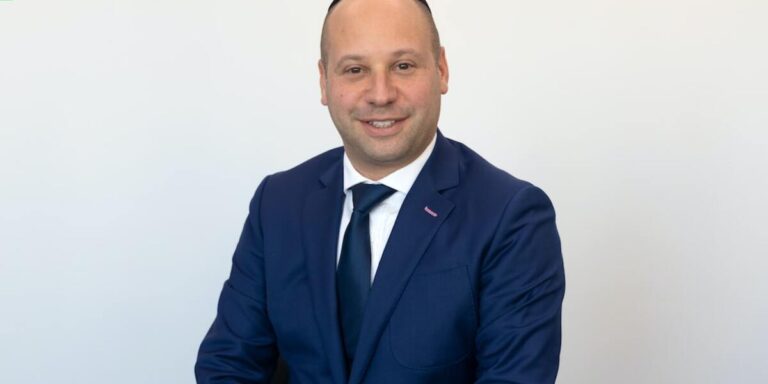What are the steps of probate in SC?
Probate is the legal process of administering a deceased person’s estate. It can be an overwhelming and confusing experience for those who are unfamiliar with the steps involved, especially in South Carolina (SC). If you find yourself needing help navigating this complex process, it may be beneficial to seek out assistance from a probate lawyer Columbia SC. In this blog post we will discuss what exactly is required when going through probate in SC so that you have all of the information necessary to make informed decisions about your loved one’s estate.
The first step towards understanding how probate works in SC is familiarizing oneself with its laws and regulations regarding estates administration. Each state has different rules governing wills, trusts, intestacy succession (inheritance without a will), creditors’ rights claims against assets held by decedents at death, tax issues related to inheritance or transfers between family members upon death as well as other matters pertaining to settling an individual’s affairs after they pass away. Knowing these requirements ahead of time can save much confusion down the road if there are any disputes over property distribution or debts owed during probating proceedings – making it even more important for individuals dealing with such situations to consult experienced professionals like those found at our firm specializing in Probates Lawyer Columbia SC services!
Understanding the Probate Process in South Carolina
The probate process in South Carolina can be a complex and lengthy endeavor. It is important to understand the basics of this legal procedure before you begin, especially if you are considering hiring a probate lawyer in Columbia SC. Probate is essentially the court-supervised process by which an estate’s assets are distributed after someone passes away. This includes collecting all debts owed to or from the deceased person, as well as determining who will receive any remaining property left behind by them. The entire process typically takes several months and requires various documents such as death certificates, wills or trusts that must be filed with local courts for approval before anything else can take place. Having experienced representation during this time period may help make it go more smoothly; however, not everyone needs assistance when going through probate proceedings – some people choose to handle things on their own without involving lawyers at all!
Filing for Probate and Obtaining Letters of Administration
Filing for probate is a necessary step when dealing with the estate of someone who has passed away. Probate lawyers in Columbia SC can help guide you through this process, ensuring that all legal requirements are met and helping to ensure an efficient resolution. The first step in filing for probate is obtaining Letters of Administration from the court; these letters serve as proof that your request has been approved by the court and allows you to act on behalf of the deceased’s estate. Obtaining Letters of Administration requires submitting paperwork such as death certificates, wills or other documents related to inheritance rights; it also involves making sure any debts owed by the deceased have been paid before proceeding with distribution among heirs or beneficiaries according to their wishes. A knowledgeable probate lawyer will be able to provide guidance throughout this process so that everything goes smoothly and efficiently while protecting everyone involved from potential disputes over property division or debt repayment obligations down the line.
Finalizing an Estate Through Distribution and Closing
The process of finalizing an estate through distribution and closing can be complex, especially when the deceased has left behind a sizable amount of assets. A probate lawyer in Columbia SC is essential to ensure that all legalities are followed properly so that the decedent’s wishes are carried out accurately. The first step in this process involves gathering all relevant documents such as wills, trusts, bank accounts and other financial records related to the estate. This information will then need to be reviewed by a qualified attorney who can advise on how best to proceed with distributing any assets or property according to state law and applicable regulations.
Once these steps have been completed, it’s time for creditors or beneficiaries (if there are any)to make their claims against the estate if necessary; this includes filing taxes due from income earned prior death date as well as making sure debts owed by the deceased person have been paid off before distributions begin being made among heirs/beneficiaries. Lastly once everything else is settled up – including settling disputes between family members over inheritance matters-the court will issue its decree officially closing out proceedings which allows executor(s)of said estates distribute remaining funds accordingly & bring closure entire matter at hand .
Frequently Asked Question
-
What are the steps of probate in SC?
-
How soon after death does probate have to be done?
-
What is the longest a probate can last?
-
Does real estate go through probate in South Carolina?
-
How probate laws work in South Carolina?
-
How much does the executor of an estate get paid in SC?
-
Do you need an attorney to probate a will in South Carolina?
-
What is the inheritance tax in South Carolina?
-
What is South Carolina 120 hour rule?
-
How long after probate can a property be sold?
South Carolina probate is a similar process: Contact the court to be appointed personal representative. If a will exists, you must then submit an inventory of and valuations for all assets. The court and beneficiaries should approve the document and distribute assets.
Although there is no time limit for filing for probate in law, most of the administration of an estate will be impossible until it has been received. Probate may not be required for small estates. It will all depend on how much assets are held.
The most frequently asked question about the settlement of a decedent’s estate is “How long it takes to probate a Will?” There are many factors that can affect the time it takes to probate a will. However, in general, you could be waiting for months or even years.
South Carolina’s Real Property, which is considered a probate asset in South Carolina, passes through an estate. An Executor must execute a deed to distribution in order to transfer the title to real property to estate beneficiaries.
South Carolina probate is a similar process: Contact the court to be appointed personal representative. If a will exists, you must then submit an inventory of and valuations for all assets. The court and beneficiaries should approve the document and distribute assets.
Answer: In general, the commission a Personal Representative can receive is not more than 5% of estate personal property. The commission does not apply to real property unless it is being sold as part of estate administration.
The length of probate is hard to predict, except for the informal process which is generally shorter and easier. South Carolina doesn’t require an attorney, however they may be able to help speed up the process.
South Carolina doesn’t levy any inheritance or estate taxes. You may have to pay the inheritance tax if your estate is large.
South Carolina’s Intestate Succession statutes require that a person outlives you for 120 hours to be eligible to inherit. If you die in an accident with your brother and you are still alive, your estate will not be entitled to any of your assets.
The potential timeline for selling a probate house could be as follows: Seeking probate grant: 6 to 12 Weeks; Marketing property in probate 8 to 12 Weeks; Conveyancing probate property: 8 to 12 Weeks (though it is possible to be quicker).
Conclusion
Probate in South Carolina is a complex process that requires the help of an experienced probate lawyer. If you are looking for a probate lawyer in Columbia, SC, it’s important to do your research and find one who has experience with local laws and regulations. You can start by visiting our website where we have trusted links and reviews from other clients about their experiences with various lawyers. With this information at hand, you will be able to make an informed decision when selecting the right attorney for your case.






